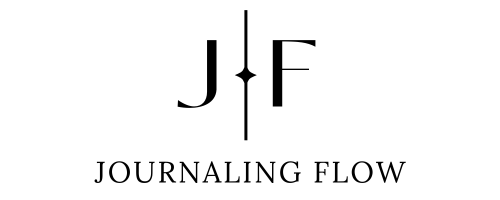
Journaling is a powerful tool for professionals looking to enhance personal and career growth. It’s not just a space for reflection but a practical method for improving time management, boosting focus, and setting meaningful goals. In today’s fast-paced work environment, taking the time to journal can help you stay organised, clear-headed, and aligned with your long-term aspirations.
This guide will explore how journaling for personal development can transform your professional life and provide actionable tips to integrate journaling into your daily routine.
Why Professionals Should Use Journaling for Personal Development
For professionals, journaling isn’t just about introspection—it’s a strategic practice that supports personal and career growth. Here’s why journaling for personal development is so effective:
- Improves clarity: Writing down your thoughts helps you focus on what truly matters in your work and life.
- Enhances decision-making: Reflecting on challenges and solutions can lead to better, more informed choices.
- Boosts productivity: Journaling allows you to organise tasks, set priorities, and manage time effectively.
- Fosters career growth: Regularly documenting progress and goals keeps you aligned with your professional aspirations.
How to Use Journaling for Personal Development
1. Set Career Goals and Track Progress
A key aspect of journaling for personal development is goal setting. Use your journal to outline your short-term and long-term career goals, then track your progress over time.
Exercise: Write down your top professional goals for the next month, quarter, and year. Break each goal into smaller, actionable steps and reflect on your progress weekly.
2. Reflect on Challenges and Successes
Journaling provides a space to reflect on both your achievements and the obstacles you face. This practice helps you identify patterns, learn from mistakes, and celebrate wins.
Exercise: After completing a major project or task, write about what went well, what could improve, and what you learned.
3. Manage Time Effectively
Time management is essential for professionals, and journaling can help you prioritise tasks and maintain focus. Use your journal as a planning tool to organise your schedule and stay on top of responsibilities.
Exercise: At the start of each day, write a list of your top three priorities. At the end of the day, reflect on what you accomplished and how you can improve tomorrow.
4. Cultivate a Growth Mindset
Journaling fosters a growth mindset by encouraging self-reflection and focusing on areas for improvement. Use your journal to explore how you can overcome setbacks and develop new skills.
Exercise: Write about a recent challenge and ask yourself: “What can I learn from this experience?” and “How can I use this to grow professionally?”
5. Boost Creativity and Problem-Solving
Sometimes, the best ideas come when you least expect them. Journaling allows you to brainstorm solutions and explore creative ideas for your career.
Exercise: Use freewriting to brainstorm innovative solutions to a work problem or new strategies for achieving your professional goals.
10 Journaling Prompts for Personal and Professional Growth
These prompts can help professionals use journaling for personal development:
- “What are my top three career goals, and why are they important to me?”
- “What skills do I want to develop this year, and how can I start?”
- “What is one challenge I’m currently facing at work, and how can I approach it differently?”
- “What successes have I achieved recently, and how did they make me feel?”
- “How do I define success in my professional life?”
- “What habits or routines are helping me stay productive, and what changes could I make?”
- “What does work-life balance mean to me, and how can I create it?”
- “What lessons have I learned from my most recent mistakes or setbacks?”
- “Who inspires me in my career, and what can I learn from their journey?”
- “What steps can I take this week to move closer to my professional goals?”
Making Journaling a Consistent Habit
For journaling to support your personal and professional growth, consistency is key. Here are some tips for integrating journaling into your routine:
- Schedule it: Set aside 5-10 minutes daily or weekly for journaling. Choose a time that works best for you, such as in the morning or after work.
- Keep it simple: Use prompts to guide your writing and focus on what feels most relevant to your professional life.
- Reflect regularly: Periodically review past entries to track your progress and identify growth opportunities.
Conclusion: Transform Your Career Through Journaling
Journaling for personal development is a simple yet powerful practice for professionals. By setting goals, reflecting on challenges, and tracking progress, you can use journaling to enhance your career, improve time management, and cultivate a growth mindset. Start small, stay consistent, and let your journal become a tool for both self-reflection and professional success.
Want more journaling inspiration?
Get exclusive prompts, techniques, and insights straight to your inbox.
Join the Journaling Flow newsletter today!


